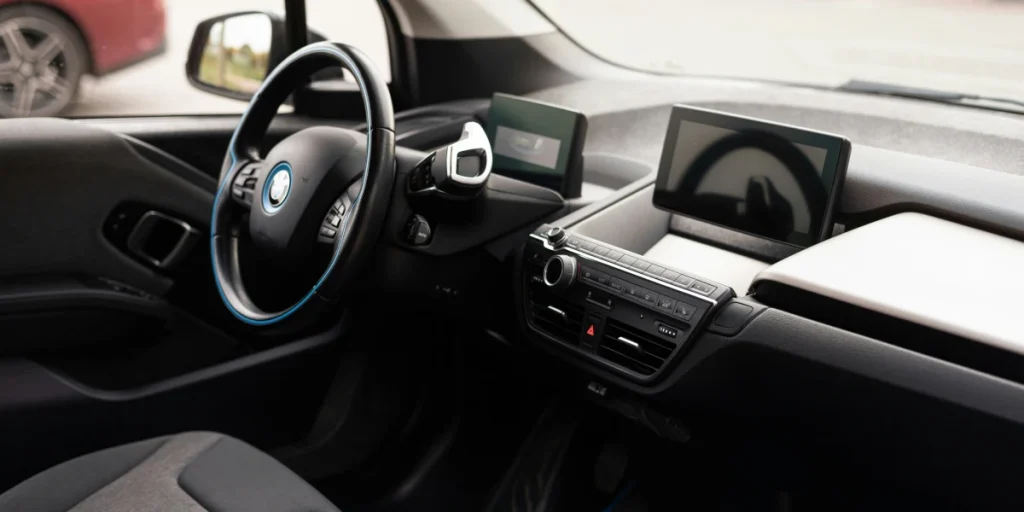Bavaria stands as a cornerstone of the automotive industry in Germany. Renowned for its engineering excellence, the region hosts some of the world’s most iconic automotive brands. This post explores Bavaria’s Role in Automotive History, focusing on two giants: BMW and Audi. From humble beginnings to global powerhouses, these brands have shaped the automotive landscape and reflected Bavarian innovation and tradition.
The Early Days of Automotive Innovation in Bavaria
Bavaria’s automotive story began in the late 19th century. Karl Benz and Gottlieb Daimler, pioneers of the automobile, contributed significantly to this evolution. While their names are often linked with Stuttgart, their innovations reverberated throughout Germany, including Bavaria. This period marked the beginning of a quest for speed, luxury, and efficiency.
In 1916, the Bayerische Motoren Werke AG (BMW) emerged in Munich. Initially, BMW focused on aircraft engines, a crucial sector during World War I. This early expertise in engineering laid the foundation for BMW’s future endeavors in the automotive world. In 1923, BMW produced its first motorcycle, the R32, which gained acclaim for its performance and design.
BMW: A Journey from Aircraft to Automobiles
BMW transitioned to automobile manufacturing in the 1920s. The first automobile, the BMW 3/15, rolled off the assembly line in 1929. This model marked a turning point for BMW, establishing its reputation for quality and performance. Bavarian craftsmanship became synonymous with luxury, precision, and innovation.
The Rise of the BMW Brand
Throughout the 1930s, BMW expanded its automobile lineup. The BMW 328 became one of the most celebrated models of its time. Its lightweight design and powerful engine led to numerous racing victories, showcasing Bavarian engineering prowess.
After World War II, BMW faced significant challenges. The company struggled to rebuild amid a devastated economy. However, BMW persevered, launching the BMW 501, which helped re-establish the brand’s identity. This full-size luxury sedan demonstrated BMW’s commitment to quality and craftsmanship.
The Iconic BMW 2002
The 1960s marked another significant milestone for BMW. The introduction of the BMW 2002 transformed the brand into a performance-oriented automaker. This model established BMW’s reputation for creating sporty, agile vehicles that appealed to driving enthusiasts. The 2002’s success paved the way for future models, solidifying BMW’s place in automotive history.
Innovation and Technology
Bavaria’s role in automotive history is defined by innovation. BMW pioneered several technologies that revolutionized the automotive industry. The introduction of the first production turbocharged engine in the 1973 BMW 2002 Turbo showcased the brand’s commitment to performance.
In the 1980s, BMW continued to innovate. The company introduced the E30 M3, which became an icon in the performance car segment. This model combined sporty performance with everyday usability, appealing to a broad range of customers. The success of the M3 cemented BMW’s position as a leader in the automotive market.
Audi: The Four Rings of Innovation
While BMW thrived, another Bavarian brand, Audi, was quietly making its mark. Founded in 1909 in Zwickau, Saxony, Audi became part of the Auto Union in the 1930s, bringing together four automotive brands. The four rings symbolize this union, representing Audi, DKW, Horch, and Wanderer.
The Return to Bavaria: Audi’s Revival
After World War II, Audi faced challenges similar to BMW. The company struggled to regain its footing in a competitive market. In 1949, Audi resumed production, focusing on compact and affordable cars. The Audi 100, launched in 1968, marked a turning point for the brand. This model combined modern design with advanced engineering, winning critical acclaim.
The Quattro Revolution
In the 1980s, Audi transformed the automotive landscape with its Quattro all-wheel-drive system. This innovative technology provided superior traction and stability, revolutionizing the performance segment. The Audi Quattro’s success in rally racing established the brand as a force in motorsports.
Audi’s commitment to innovation continued with the introduction of the Audi 80 and Audi 100. These models showcased Audi’s dedication to luxury, performance, and technology. The use of lightweight materials and advanced engineering solidified Audi’s reputation as an innovator in the automotive industry.
Audi and the Luxury Market
In the 1990s, Audi focused on expanding its luxury offerings. The launch of the Audi A8 positioned the brand as a competitor to established luxury automakers. The A8’s sophisticated design, advanced technology, and superior performance appealed to discerning customers.
Audi continued to innovate with the introduction of the TDI diesel engine in the late 1990s. This technology combined efficiency with performance, appealing to eco-conscious consumers. Audi’s commitment to sustainability mirrored Bavaria’s broader focus on environmental responsibility.
The Role of Automotive Engineering Schools in Bavaria
Bavaria is home to prestigious engineering schools and institutions that shape the future of automotive engineering. The Technical University of Munich (TUM) stands as a leading institution in this field. TUM offers specialized programs in automotive engineering, fostering innovation and research.
These educational institutions play a crucial role in Bavaria’s automotive ecosystem. They produce skilled engineers who contribute to the success of brands like BMW and Audi.
Research and Development in Bavaria
Research and development (R&D) play a vital role in Bavaria’s automotive landscape. Companies invest heavily in R&D to stay competitive. BMW and Audi allocate significant resources to develop new technologies and improve existing models.
The establishment of innovation hubs and tech clusters in Bavaria fosters collaboration. Startups, established automakers, and research institutions work together to drive innovation. This collaborative environment has led to breakthroughs in electric mobility, autonomous driving, and connectivity.
The Future of Bavaria in Automotive History
As we look to the future, Bavaria’s role in automotive history continues to evolve. The region faces challenges and opportunities as the industry undergoes a significant transformation. The shift towards electric mobility and sustainable practices shapes the future of automotive manufacturing.
Electric Mobility Initiatives
Bavaria is at the forefront of the electric mobility revolution. BMW and Audi have committed to developing electric vehicles (EVs) to meet changing consumer demands. Both brands are investing in sustainable technologies and infrastructure to support the transition to electric mobility. This investment includes developing state-of-the-art battery technology and expanding charging networks across the region.
To facilitate this transition, BMW has launched the “i” series, which includes models like the BMW iX and i4. These vehicles combine luxury and performance with zero-emission driving. Audi has also introduced its e-tron series, which showcases their commitment to sustainable luxury. Both companies aim to achieve significant reductions in carbon emissions over the next decade.
Moreover, Bavaria’s government supports these initiatives by providing incentives for EV buyers and investing in charging infrastructure. The region’s extensive network of charging stations makes owning an electric vehicle more convenient for consumers. In addition to charging stations, Bavaria is investing in research partnerships focused on renewable energy sources for powering EVs.
The push for electric mobility aligns with global trends toward sustainability and environmental responsibility. As consumer preferences shift, automotive manufacturers must adapt or risk being left behind. Bavaria’s strong engineering heritage positions it as a leader in this essential transition for the automotive industry.
With ongoing advancements in technology and infrastructure, Bavaria is set to become a hub for electric mobility in Europe. This shift not only benefits the automotive sector but also contributes to a greener, more sustainable future for the region and beyond.
BMW i3 and Audi e-tron
The introduction of models like the BMW i3 and Audi e-tron demonstrates this commitment. These vehicles showcase Bavarian engineering excellence while prioritizing sustainability. Both models have received acclaim for their performance, design, and advanced technology. They not only appeal to eco-conscious consumers but also highlight the driving pleasure that BMW and Audi are known for.
The shift towards EVs reflects Bavaria’s dedication to reducing its carbon footprint and promoting eco-friendly practices. With ambitious plans to phase out internal combustion engines in favor of electric alternatives, the region aims to lead the automotive industry into a greener future. Furthermore, the collaboration between automakers and local governments enhances the development of EV-friendly infrastructure, such as charging stations and renewable energy sources.
As part of this transition, BMW has unveiled its Vision iNEXT concept, which emphasizes autonomous driving and electric mobility in one cohesive package. Audi, on the other hand, is focused on the Audi Q4 e-tron, a compact SUV that blends performance with environmental consciousness. These innovative models demonstrate that Bavaria is not just adapting to trends but actively shaping the future of transportation.
In addition, Bavaria’s universities and research institutions are collaborating with automotive companies to advance electric mobility solutions. By fostering innovation and creating a skilled workforce, they ensure that the region remains a leader in automotive technology. This concerted effort highlights the importance of sustainable practices in manufacturing and product development.
Overall, the commitment to electric mobility showcases Bavaria’s proactive approach to addressing climate change and enhancing urban mobility. As BMW and Audi continue to innovate, they inspire other manufacturers worldwide to embrace sustainability, making Bavaria a beacon for the future of the automotive industry. This focus on sustainability further solidifies Bavaria’s Role in Automotive History, as the region leads the charge toward eco-friendly solutions.

Autonomous Driving Innovations
Another area of focus for Bavaria’s automotive industry is autonomous driving technology. Both BMW and Audi are investing in research and development to bring self-driving cars to the market. These innovations have the potential to revolutionize transportation and enhance road safety. Collaborations with tech companies and startups drive advancements in autonomous driving. Bavaria’s innovation ecosystem fosters the development of cutting-edge technologies that will shape the future of mobility.
Autonomous vehicles promise to reduce human error, which accounts for a significant percentage of accidents. Furthermore, they aim to improve traffic flow, potentially reducing congestion in busy urban areas. By integrating artificial intelligence, these vehicles can learn from their surroundings and adapt to changing conditions. This adaptability will enhance overall user experience and safety.
In addition, regulatory bodies are working closely with automotive manufacturers to establish guidelines for self-driving technologies. This cooperation ensures that safety standards evolve alongside technological advancements. As a result, the path to deploying autonomous vehicles on public roads becomes more streamlined.
Public acceptance of autonomous driving will also play a crucial role in its success. Educational campaigns will inform consumers about the safety and benefits of self-driving vehicles. Ultimately, Bavaria’s commitment to innovation positions it as a leader in the race toward a future where autonomous vehicles become a part of everyday life.
Conclusion: A Legacy of Excellence
Bavaria’s role in automotive history is marked by innovation, engineering excellence, and a commitment to quality. From the early days of BMW and Audi to their current leadership in electric mobility and autonomous driving, the region continues to shape the future of the automotive industry.
As we reflect on Bavaria’s contributions, we recognize the impact of these brands on global automotive history. Their commitment to innovation and sustainability sets the standard for the industry, ensuring that Bavaria remains a vital player in the automotive landscape for years to come.
Bavaria’s journey from BMW to Audi showcases a rich tapestry of innovation, resilience, and ambition. This legacy continues to inspire future generations of engineers, designers, and automotive enthusiasts worldwide.
